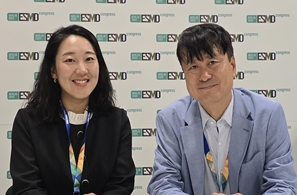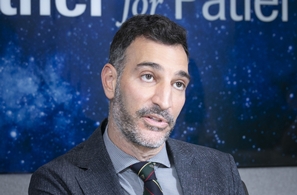- Rapid growth in RSV prevention market for infants
- by Whang, byung-woo | translator Hong, Ji Yeon | Aug 8, 2025 06:02am
Attention has been focused on whether a presidential pledge to support this antibody injection, which marks a global shift in RSV prevention strategy away from only high-risk groups, will lead to its inclusion in the National Immunization Program (NIP).
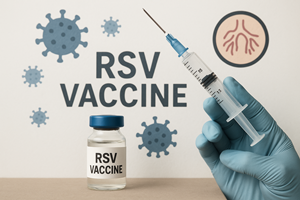
Analysis suggests that the primary reason for this is attributed to the increased focus on the entire vaccine industry, as infectious disease response capabilities emerge as a national competitive asset following the COVID-19 pandemic.
The RSV prevention options market, in particular, is experiencing significant growth. The two RSV prevention options recently launched in Korea are Sanofi's 'Beyfortus' and GSK's 'Arexvy.'
Arexvy can be administered to adults aged 60 and over, while Beyfortus is for all newborns and infants entering their first RSV season.
Children up to 24 months of age who are at high risk for severe RSV disease during their second RSV season can also receive it.
The MFDS report projects that the RSV market, which began with approvals in 2023, will grow rapidly to $4.5 billion to $ 7.5 billion by 2027.
However, the growth trajectory is expected to vary slightly depending on the indication, for instance, pediatric vs. adult. Due to factors such as adjusted recommended ages in the U.S., Arexvy's cumulative global sales decreased by 37% year-over-year by Q3 2024.
In contrast, Beyfortus recorded cumulative sales of approximately KRW 1.2609 trillion during the same period, representing a 516% year-over-year increase.
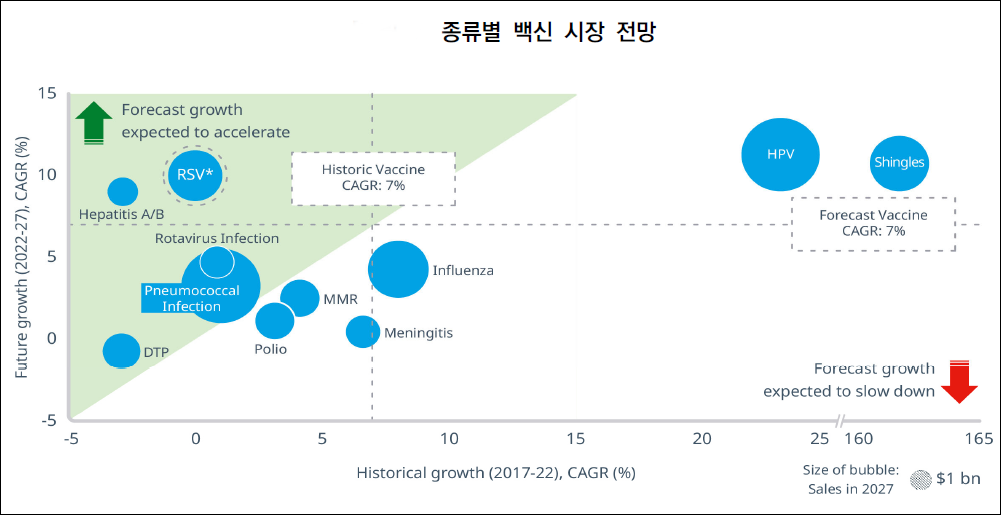
This growth is interpreted as a significant expansion in demand for infant and newborn RSV prevention options, as their immature bronchi and lungs can worsen to bronchiolitis or pneumonia, leading to hospitalization.
RSV is a common respiratory virus that infects 90% of infants and young children under the age of two.
It's a leading cause of hospitalization for respiratory infections in this age group during late autumn and winter, requiring special attention from families with young children.
The issue is the lack of a clear prevention option for RSV infection until recently. Before Beyfortus was launched, an antibody injection called Synagis was only used for high-risk infants and young children, such as those who were premature or had underlying conditions like heart or lung disease.
However, persistent criticism has been raised about the existence of a preventive blind spot, as approximately 80% of infants who visited hospitals for RSV were healthy full-term babies with no underlying conditions.
Consequently, there has been a high unmet need for a preventive option for all newborns and infants.
The introduction of the RSV preventive antibody injection, Beyfortus, has started to address these unmet needs.
Launched in Korea in February of this year, Beyfortus is an RSV preventive antibody injection that can be administered to all newborns and infants entering their first RSV season, as well as high-risk children under 24 months.
Since it provides continuous protection for at least five months with a single injection, either before or during the season, garnering significant interest from parents of infants and young children since its launch.
Dr. Ki Wook Yun, a professor in the infectious diseases division of the Department of Pediatrics at Seoul National University College of Medicine, explained, "RSV is a virus that infects 90% of infants and young children under the age of two, and in some infants, symptoms can worsen to bronchiolitis or pneumonia, leading to hospitalization."
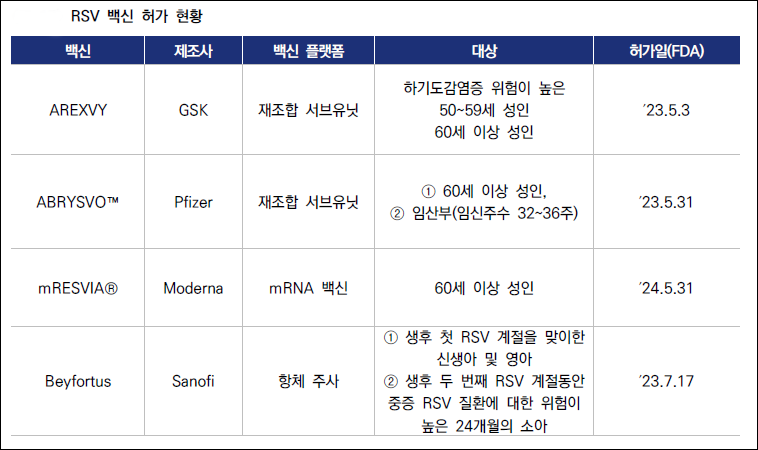
This response is also confirmed in the global market. In places like Galicia, Spain, and Queensland, Australia, Beyfortus has been included in their National Immunization Programs (NIPs) and regional immunization programs, leading to a reduction in RSV-related hospitalizations.
Notably, in Queensland, Australia, the importance of vaccination is being re-emphasized, as evidenced by the fact that there were no RSV hospitalizations in infants who received Beyfortus over a four-week period.
In Korea, however, the Beyfortus vaccination is paid for entirely out of pocket. Although it's a preventive option for RSV, which is known to infect two out of three infants under one year old, its cost burden means only a few families can afford it. This raises concerns about health equity.
However, the current administration's presidential pledge included support for an anti-RSV antibody injection for infants and young children, which has led to growing expectations for future policy changes.
If this policy is implemented through measures such as including Beyfortus in the NIP, all newborns and infants in Korea will be able to receive Beyfortus without incurring the cost burden.
In this regard, Yun commented, "Although only out of pocket vaccination is currently possible in Korea, I hope that support for the anti-RSV antibody injection will be expanded as part of the government's low birth rate and infant health policies."
-

- 0
댓글 운영방식은
댓글은 실명게재와 익명게재 방식이 있으며, 실명은 이름과 아이디가 노출됩니다. 익명은 필명으로 등록 가능하며, 대댓글은 익명으로 등록 가능합니다.
댓글 노출방식은
댓글 명예자문위원(팜-코니언-필기모양 아이콘)으로 위촉된 데일리팜 회원의 댓글은 ‘게시판형 보기’와 ’펼쳐보기형’ 리스트에서 항상 최상단에 노출됩니다. 새로운 댓글을 올리는 일반회원은 ‘게시판형’과 ‘펼쳐보기형’ 모두 팜코니언 회원이 쓴 댓글의 하단에 실시간 노출됩니다.
댓글의 삭제 기준은
다음의 경우 사전 통보없이 삭제하고 아이디 이용정지 또는 영구 가입제한이 될 수도 있습니다.
-
저작권·인격권 등 타인의 권리를 침해하는 경우
상용 프로그램의 등록과 게재, 배포를 안내하는 게시물
타인 또는 제3자의 저작권 및 기타 권리를 침해한 내용을 담은 게시물
-
근거 없는 비방·명예를 훼손하는 게시물
특정 이용자 및 개인에 대한 인신 공격적인 내용의 글 및 직접적인 욕설이 사용된 경우
특정 지역 및 종교간의 감정대립을 조장하는 내용
사실 확인이 안된 소문을 유포 시키는 경우
욕설과 비어, 속어를 담은 내용
정당법 및 공직선거법, 관계 법령에 저촉되는 경우(선관위 요청 시 즉시 삭제)
특정 지역이나 단체를 비하하는 경우
특정인의 명예를 훼손하여 해당인이 삭제를 요청하는 경우
특정인의 개인정보(주민등록번호, 전화, 상세주소 등)를 무단으로 게시하는 경우
타인의 ID 혹은 닉네임을 도용하는 경우
-
게시판 특성상 제한되는 내용
서비스 주제와 맞지 않는 내용의 글을 게재한 경우
동일 내용의 연속 게재 및 여러 기사에 중복 게재한 경우
부분적으로 변경하여 반복 게재하는 경우도 포함
제목과 관련 없는 내용의 게시물, 제목과 본문이 무관한 경우
돈벌기 및 직·간접 상업적 목적의 내용이 포함된 게시물
게시물 읽기 유도 등을 위해 내용과 무관한 제목을 사용한 경우
-
수사기관 등의 공식적인 요청이 있는 경우
-
기타사항
각 서비스의 필요성에 따라 미리 공지한 경우
기타 법률에 저촉되는 정보 게재를 목적으로 할 경우
기타 원만한 운영을 위해 운영자가 필요하다고 판단되는 내용
-
사실 관계 확인 후 삭제
저작권자로부터 허락받지 않은 내용을 무단 게재, 복제, 배포하는 경우
타인의 초상권을 침해하거나 개인정보를 유출하는 경우
당사에 제공한 이용자의 정보가 허위인 경우 (타인의 ID, 비밀번호 도용 등)
※이상의 내용중 일부 사항에 적용될 경우 이용약관 및 관련 법률에 의해 제재를 받으실 수도 있으며, 민·형사상 처벌을 받을 수도 있습니다.
※위에 명시되지 않은 내용이더라도 불법적인 내용으로 판단되거나 데일리팜 서비스에 바람직하지 않다고 판단되는 경우는 선 조치 이후 본 관리 기준을 수정 공시하겠습니다.
※기타 문의 사항은 데일리팜 운영자에게 연락주십시오. 메일 주소는 dailypharm@dailypharm.com입니다.
- [Op-Ed] Patients, no time left for 'new drug comb therapies'
- Special Contribution | Eo, Yun-Ho



